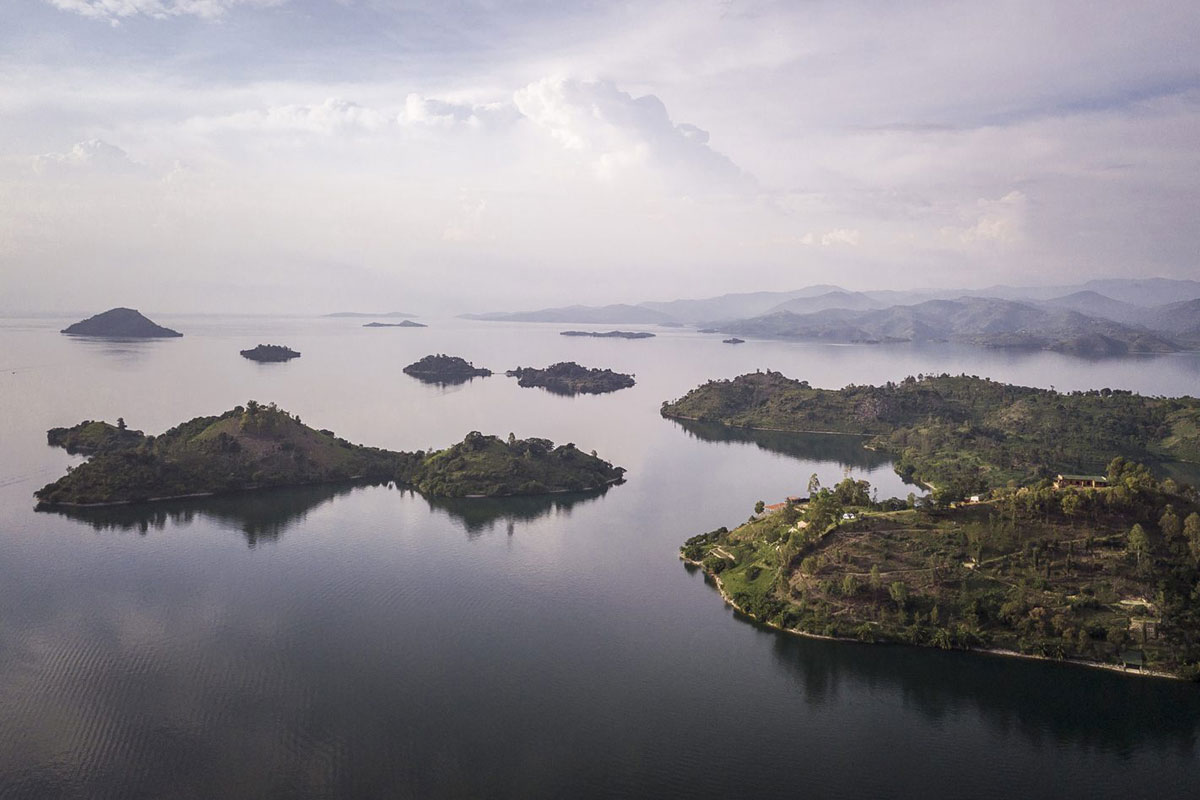Lake Kivu is a freshwater lake covering a total surface area of 2730 km2 on the border between the Democratic Republic of the Congo and Rwanda. It lies in the Albertine rift at an elevation of 1463m above sea level. It empties into the Ruzizi River, which flows southwards into Lake Tanganyika.
Lake Kivu was formed by tectonic forces that formed the Rift Valley. This rift created a depression that eventually filled with water, giving birth to Lake Kivu.
The lake has a unique chemical composition as a result of ongoing volcanic activity beneath the lake bed. It is rich in dissolved methane and carbon dioxide gases that accumulate over time.
Lake Kivu is dotted with beautiful islands and is surrounded by rolling hills and lush greenery. The lake supports a wide range of aquatic life including fish species like tilapia, sardines, and catfish.
With the stunning landscapes and various attractions, the lake has become a magnet for travelers seeking a blend of natural beauty, cultural experiences, and exciting adventures. Whether you’re a nature enthusiast, a cultural explorer, or an adventure seeker, Lake Kivu has something special to offer.

The serene shores of Lake Kivu provide a picturesque backdrop for relaxation and tranquility. Numerous luxury resorts and boutique hotels dot the coastline, offering panoramic views of the lake and the surrounding hills.
Here, visitors can unwind, savor local cuisine, and indulge in spa treatments while soaking in the soothing ambiance of the lake.
For the adventurous souls, Lake Kivu has several water-based activities. Kayaking, canoeing, and stand-up paddle boarding allow you to glide across the calm waters while taking in breathtaking views.
Jet skiing and speedboat rides provide an adrenaline rush, creating memorable experiences for water sports enthusiasts.
The communities around Lake Kivu are rich in cultural diversity and heritage. You can engage in authentic interactions with local people, gaining insights into their way of life, traditions, and artistry.
Don’t miss the chance to visit vibrant local markets, where you can shop for handcrafted souvenirs and immerse yourself in the vibrant colors and flavors of East African culture.
The hills surrounding Lake Kivu offer excellent opportunities for hiking and trekking. Trails wind through lush forests, providing glimpses of wildlife and bird species.
One of the notable hikes is the Congo Nile Trail, which stretches along the lake’s edge and offers captivating views at every turn.
Geothermal activity in Lake Kivu has given rise to natural hot springs. These therapeutic springs offer a unique way to relax and rejuvenate.
Gisenyi, a town on the Rwandan side of the lake, is famous for its lakeside hot springs, where visitors can soak in warm mineral-rich waters amidst breathtaking scenery.
Lake Kivu boasts several islands that add an air of mystery to the region. Idjwi Island, the lake’s largest island, is known for its isolated communities, vibrant culture, and lush landscapes.
A visit to these islands offers a glimpse into traditional ways of life and provides opportunities for cultural exchanges.
Exploring the culinary scene around Lake Kivu is a treat for the senses. Both Rwanda and the DRC contribute to a diverse food experience, with local dishes featuring fresh fish from the lake, tropical fruits, and vibrant spices.
Be sure to sample the delectable offerings at lakeside restaurants and street food stalls.
Lake Kivu is a haven for bird enthusiasts. Its diverse ecosystem supports over 400 bird species, making it a prime location for birdwatching.
From the graceful African fish eagle to colorful sunbirds and elusive shoebills, the region is a bird paradise.
Gisenyi is a large town spread over several hills on the northern edge of Lake Kivu. Once a colonial beach resort, Gisenyi’s waterfront is lined with fading old mansions, some decent hotels, and trendy bars on the lakeshore ideal for a sundowner cocktail.
Its sandy beaches and soothing thermal springs provide an ideal setting for unwinding and soaking up the stunning lake views.
Kibuye is probably the prettiest of Lake Kivu’s towns. It is located about 100km south of Gisenyi surrounded by hills covered in eucalyptus and pine.
Most of Kibuye’s hotels are in beautiful locations overlooking the lake and facing the sunset.
If you’re visiting in August, you may catch thousands of yellow-billed kites here flying over Lake Kivu on their annual migration.
At the southern end of Lake Kivu is Cyangugu, an old border town whose fading facade tells of its past as a vital trading gateway.
It makes for a convenient base if you want to combine a stay on the Lake with a Chimp tour in Nyungwe Forest National Park, which is only 45 minutes away.
This Lake is about 100 km from the country’s capital, Kigali. The lake can be accessed by road using public or private means. The length of the drive, however, depends on the town you are visiting.
| Kigali to Gisenyi | 3.5 hours |
| Kigali to Kibuye | 3.5 hours |
| Kigali to Cyangugu – via Kibuye | 6 hours |
| Kigali to Cyangugu – via Butare | 6.5 hours |
Lake Kivu has its unique charm, offering a blend of relaxation, adventure, culture, and natural beauty. Whether you’re seeking a serene lakeside retreat, an immersive cultural experience, or heart-pounding outdoor adventures,
This Lake promises an unforgettable escape that will leave you with cherished memories and a deeper appreciation for this remarkable corner of Africa.
